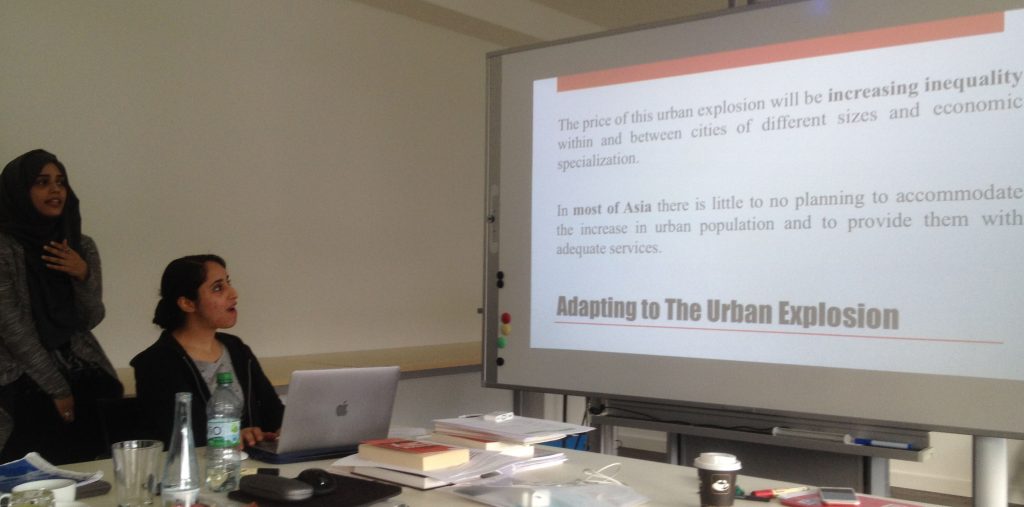
Seminar “Smart Cities and Urban Mobility”
Studiengang International Business Administration an der SRH-Hochschule Berlin
Modul Study Project: Research project.
www.srh-hochschule-berlin.de
For the first time in history, there are now more people in the world living in cities than in rural areas, and many of them are clustering on the urban outskirts. What will be remembered about our century, more than anything except perhaps changes to the climate, is the final shift of human populations from agricultural life to cities, the effects of which are being felt around the world. In 1950 there were 86 cities in the world with a population of more than one million by 2015 there will be at least 550.
Digital disruption is happening in the automotive industry. Software companies are challenging traditional companies as well as business models. Three major changes challenge an industry, too confident in laurels of the past, as the Diesel affair around Volkswagen clearly demonstrates. These are electric propulsion and the decline of the combustion engine, autonomous driving technologies and new models of ownership, sharing and pricing.
The city of the future requires mobility concepts that surpass the traditional boundaries between public/private transport, the separation between different transportation technologies as well as the overcoming of insular business and pricing mechanisms. In this field we will try mapping new routes for customer-centric connected journeys. Which effect will the present challenges have on the backbone of German “Wirtschaftswunder”, the automobile and tier-one industry?
Course Goal
Analyse certain aspects of the subject at hand, develop questionnaires, and do research bringing data to the debate. Through conducting interviews we will try to get to the core of today’s urban inhabitant’s needs and desires. We will help develop a concept for Berlin to become a pioneer in the fields marked by the three challenges. Develop a data-based reader for executives as well as the general public to understand better the challenges of the future of mobility and urbanization.
